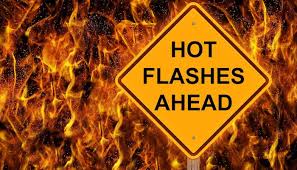Products You May Like
Article content
While politicians hail digital health passes as the solution to aviation’s COVID-19 crisis, airline bosses are still having sleepless nights about clogged up airports as they worry how to deal with the millions who have already been vaccinated.
More than 220 million people have been fully vaccinated against the disease, according to Our World in Data. Almost a billion have had at least one dose. (https://bit.ly/32HJtHQ)
But many were given shots before the development of new user-friendly, digital health passes, raising uncertainty over the status of millions of certificates issued beforehand, and industry fears of a paper trail that could gum up airports.
“As governments begin to amend travel restrictions for vaccinated travelers, it is essential that they provide clear guidance on the acceptance of paper certificates,” the group representing global airlines told Reuters in a statement.
The International Air Transport Association – which contains 290 airlines – and a similar lobby for the world’s airports have already backed efforts by the World Health Organization (WHO) to provide common standards to simplify vaccine records.
Unlike the bright yellow WHO-approved cards currently used to verify inoculation against yellow fever, for example, the new proof would contain QR codes easily scannable across borders.
Advertisement
Story continues below
This advertisement has not loaded yet, but your article continues below.
Article content
A first version of a WHO template designed for digital vaccine apps or paper is slated to be rolled out in late June, according to the global health body.
The European Union hopes to have its own “digital green pass” ready in time for the summer.
That’s not early enough for struggling airlines desperate to salvage revenues from air travel in coming weeks.
An airline industry source warned vetting paper vaccine records to meet the new standards will be a “massive effort.”
And another aviation executive, asking not to be identified as negotiations continue, expressed concern over certificates “out there that do not meet the proposed WHO standard.”
FRAUD CONCERNS
As debt-crippled airlines and hotels face a second northern hemisphere summer disrupted by the pandemic, the economic stakes involved in smoothing vaccine controls could not be higher.
“Where the vaccine comes, air travel demand follows,” Teal Group analyst Richard Aboulafia told a Defense & Aerospace Report podcast.
But Agency Partners analyst Sash Tusa, speaking on the same panel, warned vaccines were only as effective as the ability of countries at both ends of the trip to unify their requirements.
Proof of vaccination is crucial for quarantine-free travel to countries already reopening borders like Israel and Iceland. Inoculation will also be mandatory to fly on Australia’s Qantas Airways.
Complicating the drive is the risk of fraudulent vaccine records, echoing a black market in fake tests.
Advertisement
Story continues below
This advertisement has not loaded yet, but your article continues below.
Article content
In Iceland, vaccinated tourists must show electronic or paper certificates that meet local rules or face quarantine.
While such measures are practical with small numbers of tourists, recent images of passengers queuing for up to six hours at London’s Heathrow Airport for COVID-19 checks have raised the specter of chaos when air traffic rebounds.
So far there is no firm word on whether the new standards being developed by the WHO – known as Smart Vaccination Certificate or SVC – will incorporate earlier vaccinations.
According to the WHO, it is up to the agency’s 194 member countries to decide whether they should apply to existing records, either digital or paper.
Health officials believe that would be the ideal solution but are under no illusions over the scale of the catch-up task.
“For the certificate to be useful, in paper or digital format, it should include and reflect” prior vaccination records, the WHO told Reuters.
“Note that some countries, like India, have already issued over 100 million vaccination certificates.” (Reporting By Allison Lampert in Montreal. Additional reporting by Stephanie Ulmer-Nebehay in Geneva, Jamie Freed in Sydney, Tim Barsoe in Copenhagen and Steve Scheer in Jerusalem. Editing by Tim Hepher and Mark Potter)
Advertisement
Story continues below
This advertisement has not loaded yet, but your article continues below.
